There are so many types of flour. Bleached and unbleached; white flour, whole wheat flour, cake flour; grain free-flours, nut flours, bean flours. So many choices and within each type of flour, there are different brands.
Does the brand of flour matter?
I’m not comparing flour types because you can’t compare cake flour with garbanzo bean flour; one will yield a great angel food cake and the other will yield great socca.
For the sake of this comparison, I’m talking about all-purpose flour and the brand.
A bit about all-purpose flour:
“All-purpose flour has a 10-12% protein content and is made from a blend of hard and soft wheat flours. It can be bleached or unbleached which are interchangeable. However, Southern brands of bleached all-purpose flour have a lower protein content (8%) as they are made from a soft winter wheat. All-purpose flour can vary in its protein content not only by brand but also regionally. The same brand can have different protein contents depending on what area of the country in the United States you are buying it. Good for making cakes, cookies, breads, and pastries.”
“A high percentage of protein means a harder (stronger) flour best suited to chewy, crusty breads and other yeast-risen products. Less protein means a softer flour, best for tender and chemically leavened baked goods, like pie crusts, cakes, cookies, and biscuits.”
Let’s compare based on price:
Store Brand (Ralph’s) Enriched All-Purpose Flour (bleached) = $1.99 for 5 pounds (and it’s almost always “on sale”)
This is what I typically buy and use.
Gold Medal Enriched All-Purpose Flour (unbleached). On sale for $3.49 for 5 pounds, normally $3.99 for 5 pounds
Finally, King Arthur All-Purpose Flour (unbleached). $5.49 for 5 pounds
Many say that King Arthur is the best. It’s nearly 3 times the price. I could buy 15 pounds of the Ralph’s store-brand flour for just 50 cents more than 5 pounds of King Arthur.
It’s interesting that King Arthur has a higher protein content (11.7% vs. 10.5%) compared to the other brands of all-purpose flour. Maybe that’s why people say their baked goods turn out better with The King.
Does the brand of white flour result in a better finished product?
Will my White Chocolate Blondies with Chocolate Peanut Butter Frosting benefit from different flour? I liked them just the way they were. If it ain’t broke, don’t fix it comes to mind.
Will my Fudgy Nutella Brownies somehow improve? I happen to think they’re the moistest, fudgiest, and densest brownies ever and they were made with store-brand flour.
Will my Oatmeal Raisin Cookies improve? These cookies were slightly thinner than I’d hoped, but I don’t necessarily attribute that to the flour. I attribute that to winging it with the recipe and probably needing slightly more flour and slightly less whole oats, more baking soda, and possibly playing around with the egg amount in order to create a slightly thicker cookie; or just chilling the dough.
However, last week a reader wrote to me and said these were the best oatmeal raisin cookies she’s ever made or had.
Would a different brand of flour make my Mango and White Chocolate Chip Cookies thicker? I believe their thinness is attributed more to the fresh fruit that was in the dough than the brand of flour.
It would be interesting to see what happened if I made them with King Arthur flour, but it’s not just the (brand of) flour that changes the texture of cookies. If it was that easy to just buy a certain brand of flour to ensure perfect cookies every time, we all would have done so already and we’d buy that brand forever.
Oven temp and hot or cold patches in the oven
size and shape of raw dough balls
the type of baking sheet
the liner used on the baking sheet such as parchment or a Silpat or nothing
rotating the cookie sheets during baking
the humidity levels and weather outside
baking soda and baking powder and their ratios
the ratios of brown sugar and white sugar
how cold the dough is before baking
the type of mixer used and how much the ingredients were creamed, fluffed, worked or overworked
…all these variables in addition to flour (and brand alone) will impact results.
And that’s just for cookies. There’s bars, brownies, pies, crepes, clafoutis, and croissants. Mind-boggling, actually.
I have a Cookie Baking Chart describing what adding brown/white sugar, melted or softened butter, extra egg yolks, baking soda or baking flour will do to cookies
I used the melted butter and 1 egg + 1 yolk technique in Peanut Butter Oatmeal White Chocolate Cookies. Some of my favorites ever based on both texture and taste, and I used store-brand flour, illustrating that it’s not solely flour that matters.
What kind of flour do you typically bake with? Any types you avoid? Haven’t tried? Want to try?
Do you think brand matters? What brands have you tried and do you have opinions?
But I’d be willing to spring for “vanity” flour like King Arthur rather than store-brand if people think it makes a difference.
And conversations like these are why I’d love to hang out with Alton Brown.
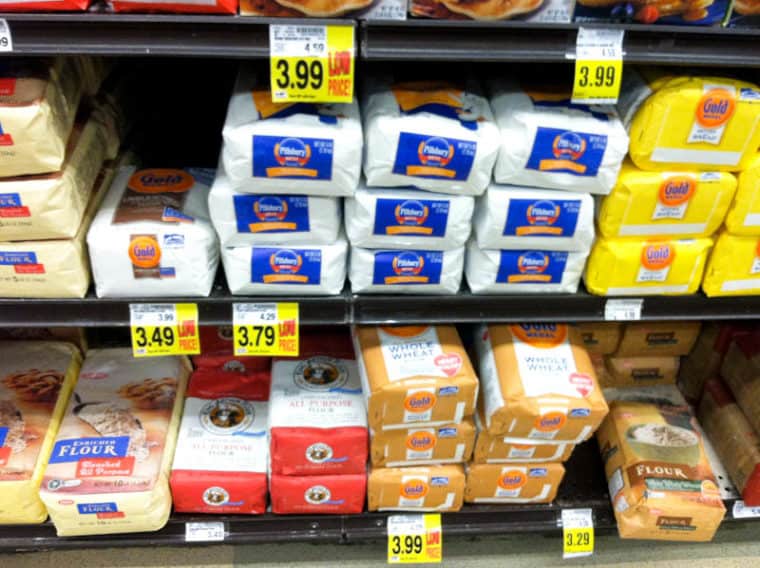
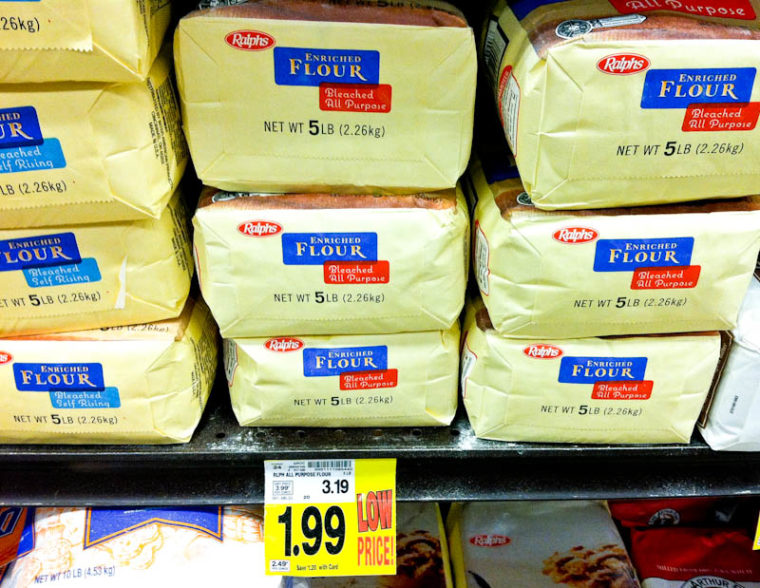
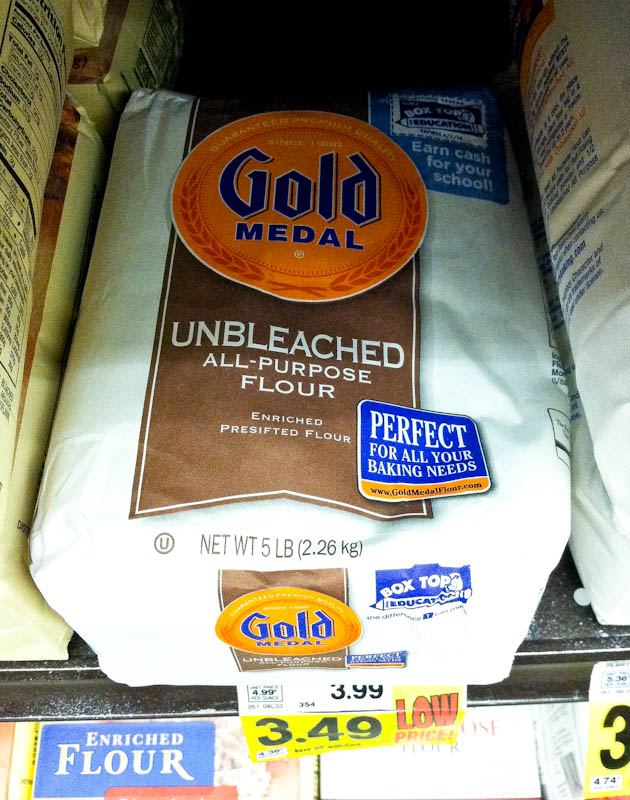
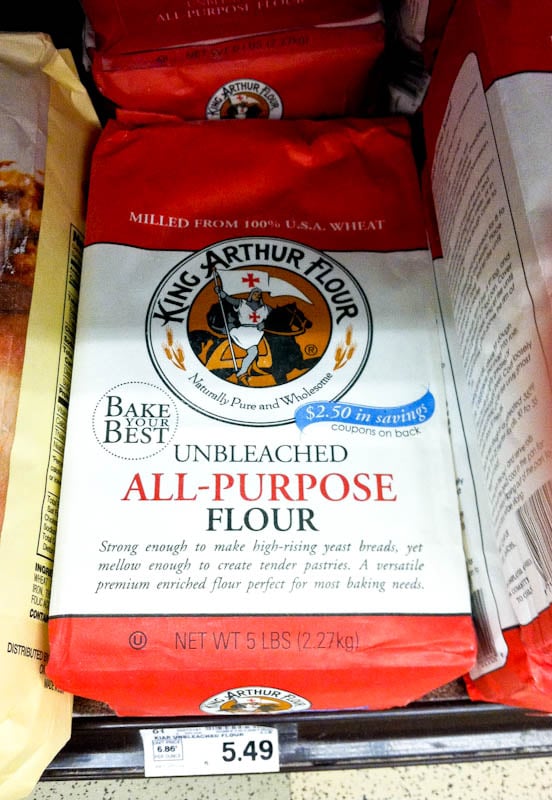
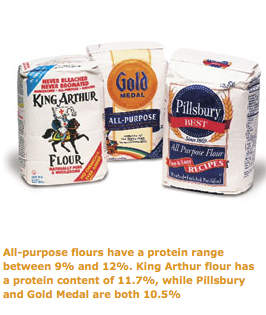
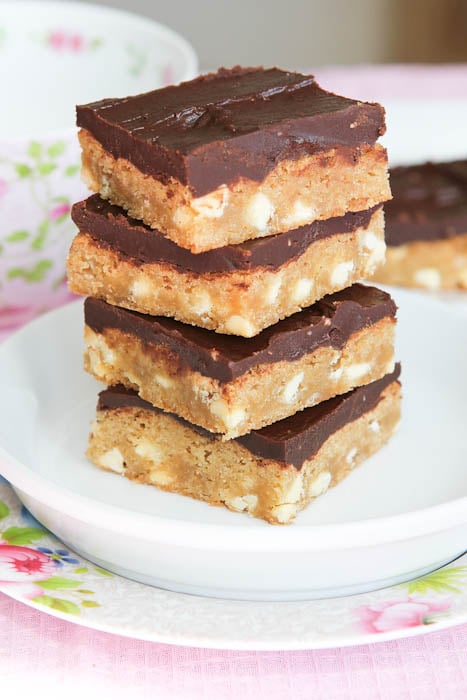
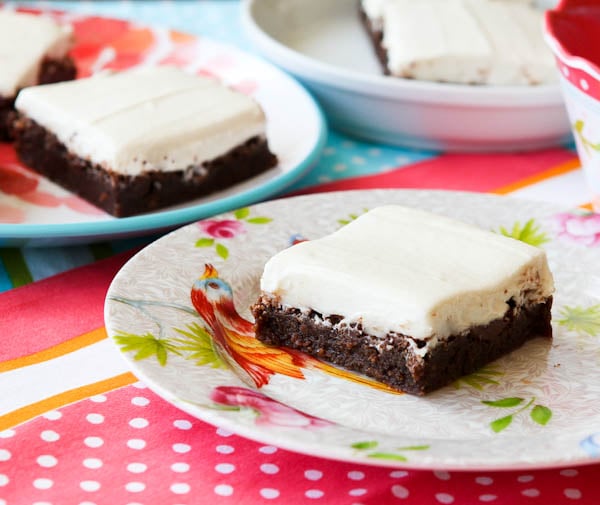
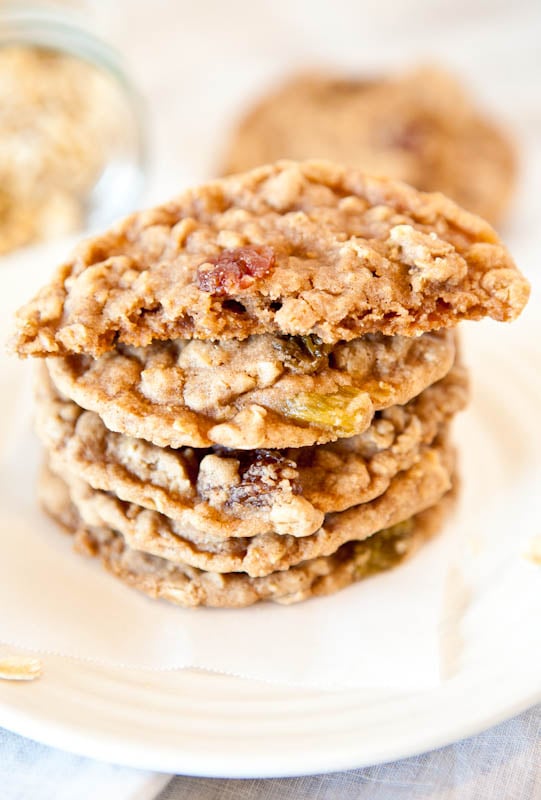
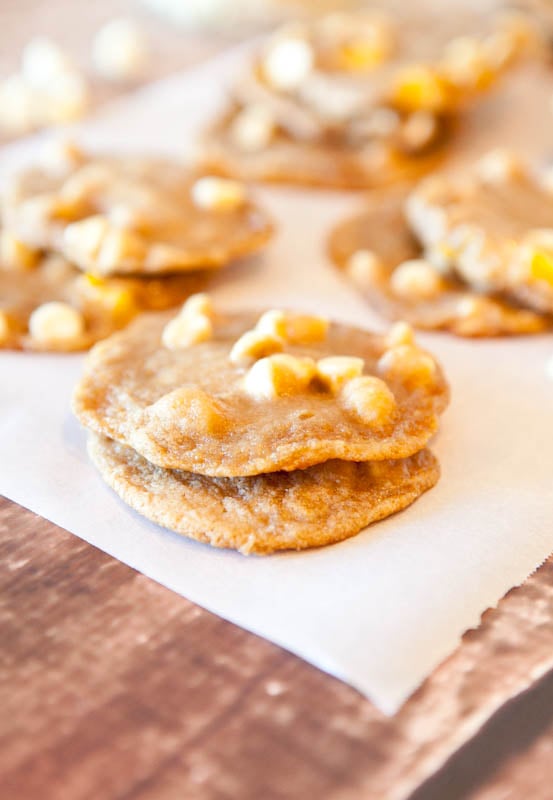
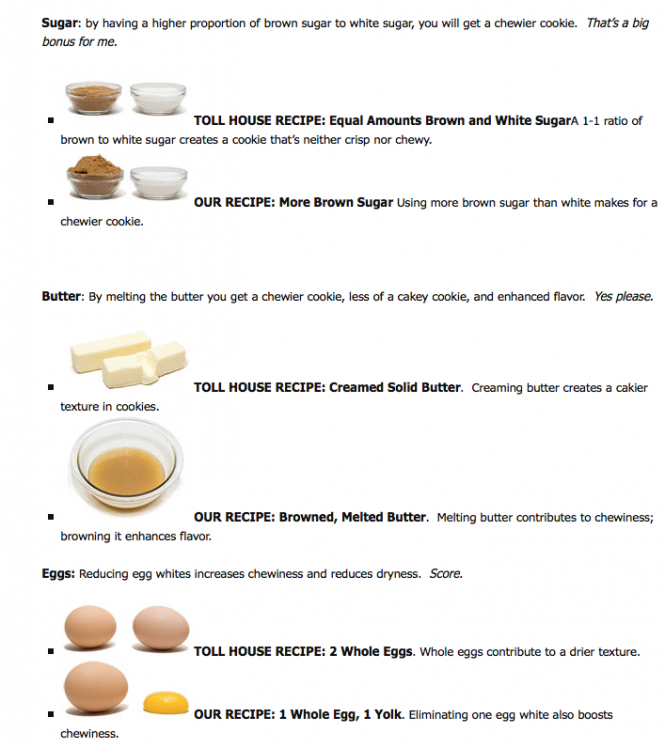
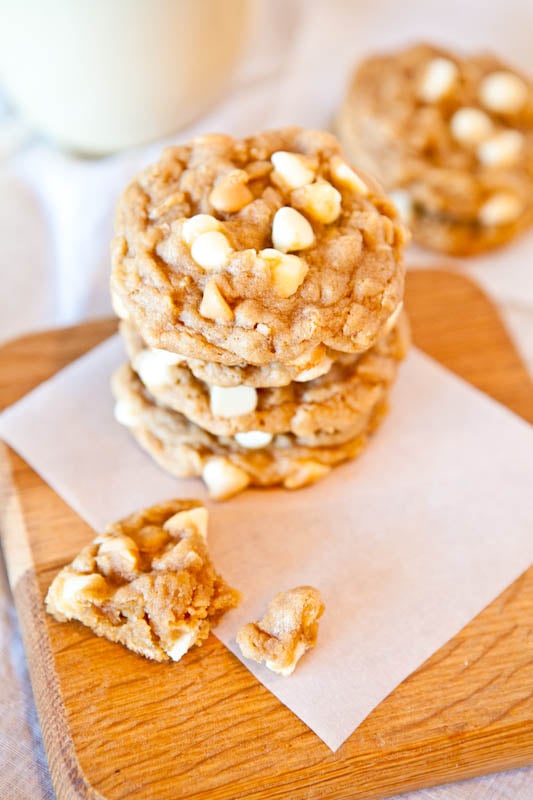
This is a great article on flour:https://www.cooksillustrated.com/tastetests/overview.asp?docid=9804
LOVE that..THANK YOU!!!
I buy organic sprouted wheat flour from a woman who sprouts and grinds it herself. I prefer sprouted flour for the nutritional aspects alone. It bakes up pretty much the same as regular wheat flour.
I am not a baker by any means, but I took a class at King Arthur last year, and after learning what an awesome company they are, am a flour devotee! They do a lot of great work around the country teaching kids about baking and sharing the baked bread with local organizations. They are also employee-owned. Our experience with them was just wonderful!
I love this firsthand account. THIS is what I love hearing about companies. On that alone, I bought some at the grocery store tonight and will be trying it out in my next batch of something or other!